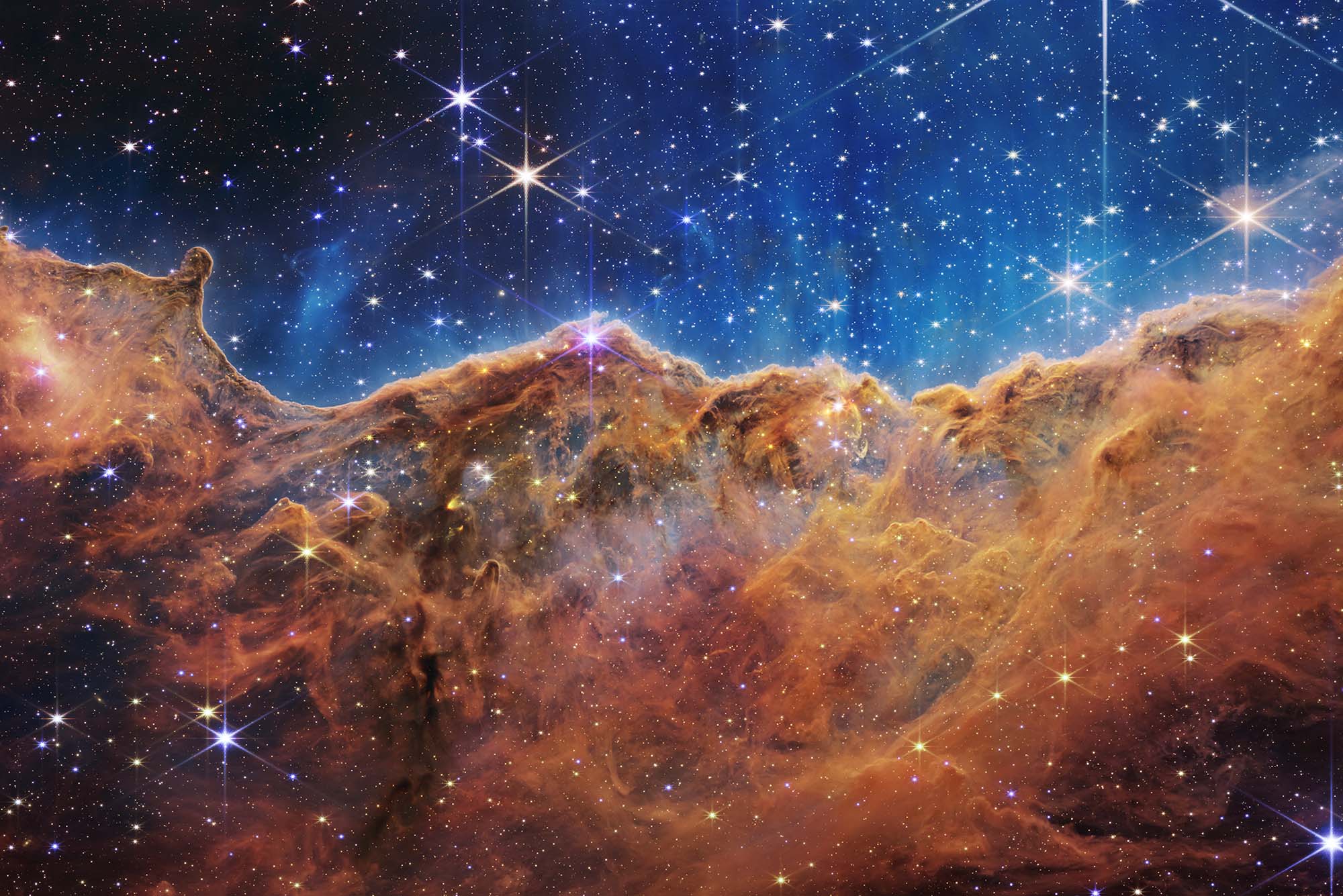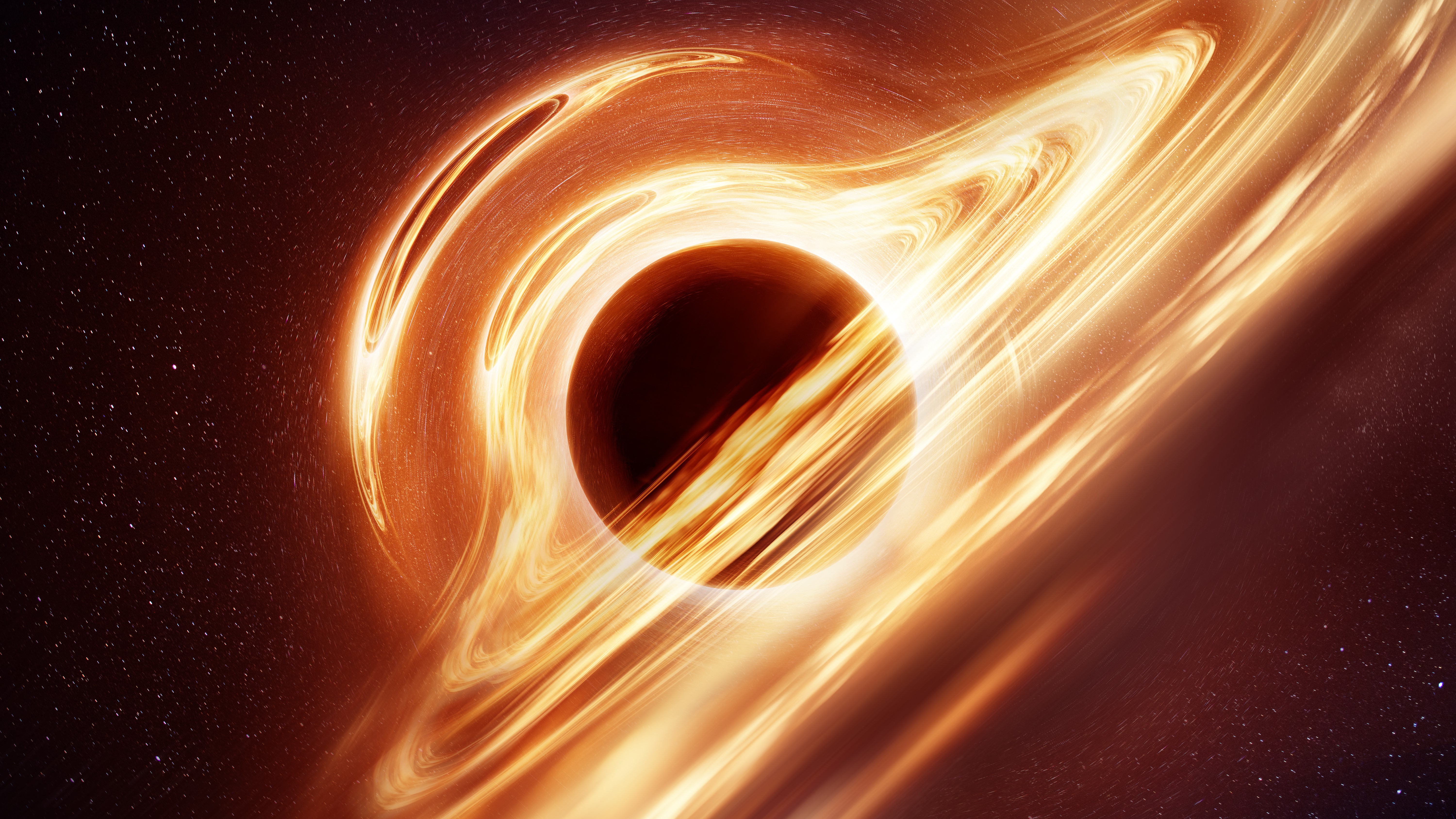Fascinating Space Exploration Discoveries - Uncovering The Mysteries Of The Universe
The exploration of space has been one of the most remarkable achievements of human history, allowing us to expand our understanding of the universe and our place within it. Over the years, space exploration has led to numerous fascinating space exploration discoveries that have challenged our perceptions of the universe and revolutionized our understanding of the cosmos.
Author:Dr. Felix ChaosphereReviewer:Xander OddityApr 26, 20234 Shares367 Views

The exploration of space has been one of the most remarkable achievements of human history, allowing us to expand our understanding of the universe and our place within it. Over the years, space exploration has led to numerous fascinating space exploration discoveriesthat have challenged our perceptions of the universe and revolutionized our understanding of the cosmos.
Incredible Space Discoveries
Here are some examples of the fascinating space exploration discoveries:
The Existence Of Exoplanets
The study of space has long been a subject of fascination for humans. Through decades of research and exploration, scientists have made incredible discoveries that have expanded our understanding of the universe. Two particularly fascinating areas of space exploration are the existence of exoplanets and evidence of water on Mars.
Exoplanets are planets that orbit stars outside our own solar system. The first exoplanet was discovered in 1995, and since then, astronomers have discovered thousands more. Some of these exoplanets are similar in size and composition to Earth, raising the possibility that they could support life.
One of the most exciting exoplanet discoveries in recent years was the TRAPPIST-1 system, which contains seven Earth-sized planets orbiting a single star. Three of these planets are located in the star's habitable zone, the area where conditions could be just right for liquid water, and potentially life, to exist.
The discovery of exoplanets has also led to new ways of studying the universe. By observing how the light from a star changes as an exoplanet passes in front of it, scientists can learn about the planet's size, mass, and even its atmosphere.
The Evidence Of Water On Mars
Another fascinating area of space exploration is the search for evidence of water on Mars. For years, scientists have been searching for signs of liquid water on the Red Planet, as it is a key indicator of the potential for life.
In 2015, NASA's Mars Reconnaissance Orbiter discovered evidence of liquid water flowing on Mars during the planet's warmest months. This discovery was particularly exciting, as it indicated that Mars may still have an active water cycle, with water moving beneath the planet's surface.
More recently, in 2021, NASA's Perseverance rover successfully landed on Mars and began a mission to search for signs of ancient life. One of the rover's main objectives is to collect and analyze samples of Martian rock and soil to look for evidence of past microbial life.
The search for water and signs of life on Mars is ongoing, and new discoveries are being made all the time. In addition to the discoveries on Mars, scientists have also found evidence of water on other planets and moons in our solar system, such as Europa, one of Jupiter's moons.
Black Holes
Black holes are one of the most mysterious and fascinating objects in the universe. They are regions in space where the gravitational pull is so strong that nothing, not even light, can escape. The existence of black holes was first predicted by the equations of general relativity, but it wasn't until the 1960s that they were confirmed to exist.
Black holes are formed when massive stars collapse in on themselves at the end of their life cycle. The gravitational force is so strong that it causes the star to collapse to a point of infinite density, known as a singularity.
This singularity is surrounded by an event horizon, which is the point of no return for anything that gets too close to the black hole. Once inside the event horizon, there is no escape from the gravitational pull of the singularity.
There are three types of black holes: stellar, intermediate, and supermassive. Stellar black holes are the most common type and are formed from the collapse of a single massive star. Intermediate black holes are thought to form from the collision of several smaller black holes or from the collapse of a massive gas cloud.
Supermassive black holes are found at the centers of most galaxies, including our own Milky Way, and are thought to be formed from the merger of several intermediate black holes.
Black holes are invisible to the naked eye, but their presence can be inferred by the effects of their gravity on nearby matter. For example, if a black hole is orbiting a star, the star will appear to wobble as it is pulled around by the black hole's gravity. Similarly, if a black hole is surrounded by a disk of gas and dust, the material will heat up and emit X-rays as it spirals toward the event horizon.
Black holes also have a profound effect on the space around them. The strong gravitational pull of a black hole can cause nearby matter to accelerate to incredible speeds, creating powerful jets of particles that shoot out into space. These jets can be seen across vast distances and can help astronomers to map the distribution of matter in the universe.
Despite their mysterious nature, black holes play an important role in the evolution of the universe. They are thought to have played a key role in the formation of galaxies, as their gravity can pull together vast clouds of gas and dust, triggering the formation of stars.
They also play a crucial role in the recycling of matter in the universe, as anything that falls into a black hole is converted into energy and radiation, which can then be used to power the growth of new stars and galaxies.
In recent years, advances in technology have allowed astronomers to observe black holes in unprecedented detail. In 2019, the first image of a black hole was captured by the Event Horizon Telescope, a globalnetwork of radio telescopes. The image showed a bright ring of light surrounding a dark central region, which is thought to be the shadow of the black hole's event horizon.
While much remains unknown about black holes, they continue to captivate and intrigue scientists and the general public alike. As our understanding of the universe continues to expand, we may yet unlock the secrets of these enigmatic objects and unravel some of the universe's deepest mysteries.
Dark Matter And Dark Energy
The study of the universe has been an area of intense interest for scientists for centuries. The discovery of new celestial objects and the exploration of the universe has led to many fascinating discoveries. One of the most intriguing areas of study in astronomy and astrophysics is the study of dark matter and dark energy.
Dark matter is a hypothetical form of matter that is thought to make up a significant portion of the universe. It is called dark matter because it does not emit, absorb or reflect light, making it invisible to telescopes.
Despite the lack of direct detection, the existence of dark matter is inferred from its gravitational effects on visible matter, such as galaxies and stars. Dark matter is thought to be responsible for the observed gravitational lensing of distant galaxies, where the light from these galaxies is bent as it passes through the gravitational field of an intervening galaxy.
Scientists believe that dark energy is responsible for the observed accelerated expansion of the universe. Dark energy is a hypothetical form of energy that is thought to permeate all space and have a negative pressure.
Unlike dark matter, dark energy is not directly observed or detected, but it is inferred from the observed accelerating expansion of the universe.
The existence of dark energy was first proposed in 1998 by two teams of astronomers, who independently studied type Ia supernovae, which are a particular type of exploding star that can be used to measure cosmic distances.
These studies revealed that the universe's expansion is accelerating, contrary to what would be expected if gravity was the only force acting on matter in the universe.

What is Dark Matter and Dark Energy?
People Also Ask
What Are Some Of The Most Fascinating Space Exploration Discoveries?
Some of the most fascinating space exploration discoveries include the discovery of exoplanets, evidence of water on Mars, and the detection of gravitational waves.
What Is An Exoplanet?
An exoplanet is a planet that orbits a star outside of our solar system.
What Is The Significance Of Finding Evidence Of Water On Mars?
Finding evidence of water on Mars is significant because it increases the possibility that Mars may have once had conditions suitable for life.
What Is Dark Matter?
Dark matter is a type of matter that does not interact with light and therefore cannot be directly observed. It is thought to make up about 27% of the universe.
Conclusion
Space exploration has led to numerous fascinating space exploration discoveries that have challenged our understanding of the universe and our place within it. From exoplanets to black holes, water on Mars to dark matter and dark energy, and the origins of the universe, space exploration has expanded our knowledge of the cosmos and opened up new avenues of research that will continue to shape our understanding of the universe for years to come.

Dr. Felix Chaosphere
Author
Dr. Felix Chaosphere, a renowned and eccentric psychiatrist, is a master of unraveling the complexities of the human mind. With his wild and untamed hair, he embodies the essence of a brilliant but unconventional thinker. As a sexologist, he fearlessly delves into the depths of human desire and intimacy, unearthing hidden truths and challenging societal norms.
Beyond his professional expertise, Dr. Chaosphere is also a celebrated author, renowned for his provocative and thought-provoking literary works. His written words mirror the enigmatic nature of his persona, inviting readers to explore the labyrinthine corridors of the human psyche.
With his indomitable spirit and insatiable curiosity, Dr. Chaosphere continues to push boundaries, challenging society's preconceived notions and inspiring others to embrace their own inner tumult.

Xander Oddity
Reviewer
Xander Oddity, an eccentric and intrepid news reporter, is a master of unearthing the strange and bizarre. With an insatiable curiosity for the unconventional, Xander ventures into the depths of the unknown, fearlessly pursuing stories that defy conventional explanation. Armed with a vast reservoir of knowledge and experience in the realm of conspiracies, Xander is a seasoned investigator of the extraordinary.
Throughout his illustrious career, Xander has built a reputation for delving into the shadows of secrecy and unraveling the enigmatic. With an unyielding determination and an unwavering belief in the power of the bizarre, Xander strives to shed light on the unexplained and challenge the boundaries of conventional wisdom. In his pursuit of the truth, Xander continues to inspire others to question the world around them and embrace the unexpected.
Latest Articles
Popular Articles
